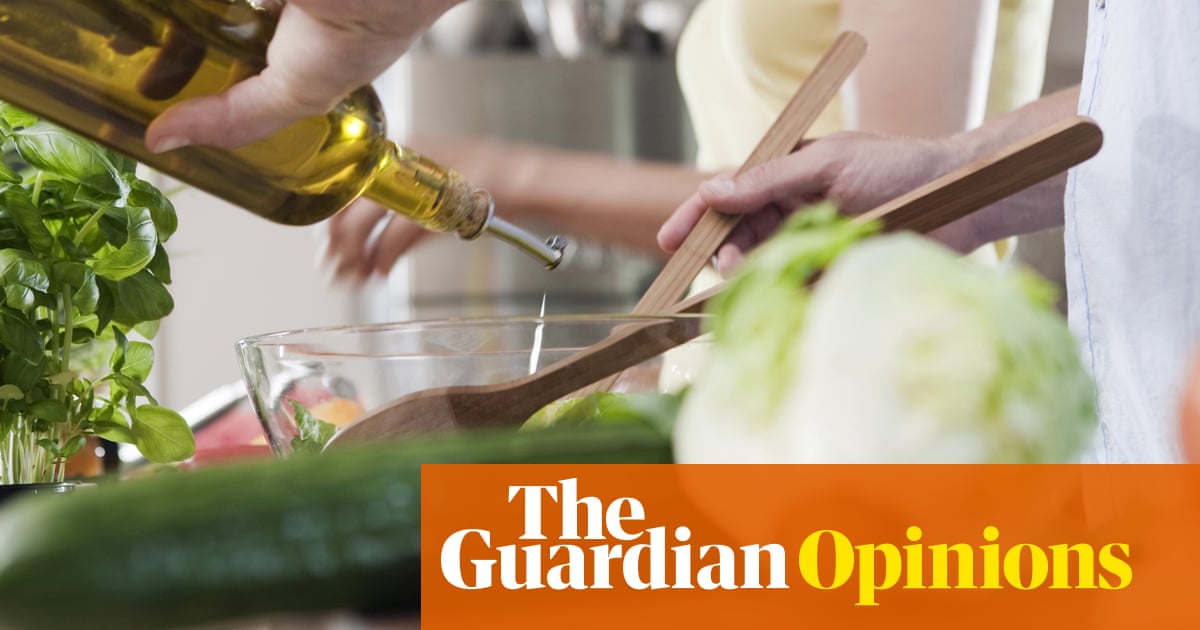If there was a single feeling that defined my 20s, it was a generalised allergy to the very concept of home: I learned it’s a myth that you only run away from it once. If you have the skills, you can spend a lot of your life dodging comfort, security and a place to return to. Which I did because I was an alcoholic, and alcoholics are always suspicious of safety. The only true way to be safe is to not drink, after all, and you do not want to stop drinking above all else.
This in turn informed my relationship to food. It goes that way for all of us: foodishome. You’re not really staying in a place unless you’ve cooked in it. Otherwise you’re just a visitor. And because I had always wanted to be a visitor, I’d long been almost deliberately malnourished. I often boasted about my profoundly undistinguished palate, because everybody wants to ensure the worst decisions they make sound like some sort of quirky character trait.
But then an odd thing happened: I quit drinking. I tried a few times, sometimes making it stick for a few months, once for over a year. And then finally, definitively, I just … stopped. I don’t want to make it sound easy. I mean more that after years of trying to find sobriety, it seemed like suddenly sobriety found me. After that, on the odd day when I caught a glance of myself in the mirror, it seemed like the person there might be someone I might quite like, someday.
It was around this time that I purchased an unusual gift for myself: a cookbook. The author was Nigel Slater, whose name rang a bell. Picking it up satisfied one of those odd urges that I had in the early days of a true commitment to sobriety. I later came to understand these urges were newfound pangs of self-preservation.
I was immediately taken by the way Slater wrote about food. These were not just recipes. They were short poems, filled with astonishingly beautiful, compact phrases: at one point in Notes from the Larder, he describes garlic being as “fresh and sweet as a baby’s breath”. This poetry was what kept me going through a number of culinary disasters – I learned that before one makes something as wholly nourishing as Slater’s macaroni and tomato pasta, they have to actually learn to cook pasta.
But I got better – better in regards to cooking, and to all the other stuff too. I started to cook almost every meal, a profound change to a lifetime of takeaway. I made sweet teas and fish cakes; ricotta pancakes and pink lemonades. All of a sudden, I found I had a new sentence to describe myself. I’d had a few in my back pocket for a long time, all of them either tied to my profession or my addictions: I am an alcoholic, I am a writer, I am a painter, I am a chain smoker. But now I had one which was tied to neither self-destruction nor my career: I like to cook.
And then something else miraculous happened: I met my partner, Rosie. I sometimes say that she taught me everything I know to be good in this world, and I mean it. The world makes sense to me now, because she is in it. Rosie likes to cook too. For many of our early days together, I was her sous-chef, chopping beside her in the kitchen, with a record on, astonished by this feeling that had come over me, which was the feeling of happiness.
These days, I do as much of the cooking in our home as I can without denying Rosie her own culinary joy. I cook for Rosie; I cook for our housemate; I cook for my friends. Because I’m a writer, I often work from home, and one of my favourite things is making something that will be ready shortly after Rosie returns from work. It feels like a little gateway into the rest of the evening; a little marker that says, we are here together again and I have something for us to eat.
Destruction is sudden. Healing is slow. You don’t actually need to make that many decisions to ruin your life, but you have to make a great deal of decisions to improve it. If you’re an addict, you need to stay sober every single day. It is work that never ends. What also never ends, but is only ever briefly satisfied: the desire to eat. When I return, almost daily, to Slater’s cookbook, I am re-pledging the desire to not die; to simply, uncomplicatedly sustain myself.
The other day I cooked a pasta bake. It was mostly done by the time I heard Rosie’s key in the door, the smells of cheese, salt and herbs wafting through the kitchen. And when I heard it, I thought, with a thrill: oh, she’s home. And I remembered again, properly, that I was too.
Joseph Earp is a critic, painter and novelist. His latest book isPainting Portraits of Everyone I’ve Ever Dated(A$34.99, Hardie Grant)
